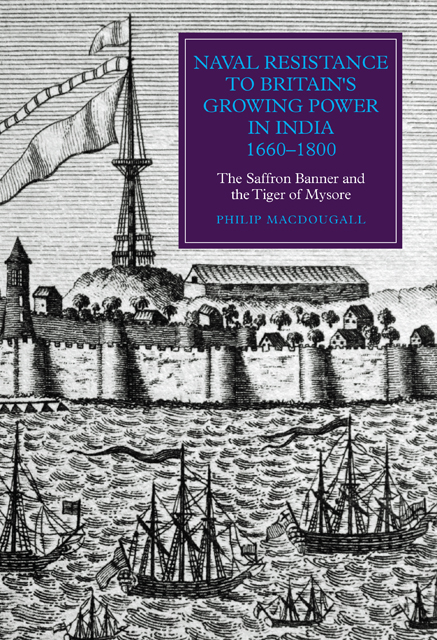 Naval Resistance to Britain's Growing Power in India, 1660–1800
Naval Resistance to Britain's Growing Power in India, 1660–1800 Book contents
- Frontmatter
- Contents
- List of Illustrations
- Abbreviations
- Chronology
- Maps
- Preface
- Part I Early Naval Resistance: The Historical Background
- Part II The Saffron Banner: Irregular Naval Warfare against an Emergent Britain
- Part III The Tiger of Mysore: A Conventional Navy to Oppose British Dominance
- Conclusion
- Bibliography
- Index
- Worlds of The East India Company
1 - Calicut: The City of Spice
Published online by Cambridge University Press: 23 February 2023
- Frontmatter
- Contents
- List of Illustrations
- Abbreviations
- Chronology
- Maps
- Preface
- Part I Early Naval Resistance: The Historical Background
- Part II The Saffron Banner: Irregular Naval Warfare against an Emergent Britain
- Part III The Tiger of Mysore: A Conventional Navy to Oppose British Dominance
- Conclusion
- Bibliography
- Index
- Worlds of The East India Company
Summary
In this city there reside many very wealthy Moorish merchants, and all the trade is in their hands. They have a fine mosque in the square of the town. The king is, as it were, governed by these Moors because of the presents which they give him; and owing to their industry the government is wholly in their hands, for these Christians are course people.
Girolamo Sernigi, c.1500
Towards the end of May 1498 Vasco da Gama hove to off Calicut having successfully confirmed in the most practical way possible that a sea route existed between Europe and the Indian sub-continent. The immediate objective was King Manuel I of Portugal (1495–1521) hoping to gain direct entry into the profitable spice trade that had previously been monopolised by Venetian merchants using the land route that connected the Mediterranean with the Red Sea. However Manuel I had a further object and one that extended beyond simple trade. He wished, with the support of the papacy, to eliminate the extensive influence of Muslims in the Indian Ocean, especially the trade networks established by Arab merchants with the port towns of India’s Malabar Coast. One of the most fervent of all Catholic countries, the rulers of Portugal were determined to bring about a total subjugation of Islam and to this end were already embroiled in a vicious war against Moorish forces in Morocco. Indeed, the decision to search out a sea route to India was nothing less than an extension of the earlier medieval crusades, allowing Portugal to strike a blow at both the Ottoman Empire and the Mamluk state of Egypt. Since the fall of Constantinople in 1453 the onward transshipment into Europe of spices traded on the Malabar Coast had to pass through these Muslim territories, bringing to both great financial benefit and helping ensure that they could maintain a continuing high level of expenditure on their military forces. That the Ottoman Turks were even, at that time, threatening to take the Holy City of Rome merely added to the urgency of the situation, pushing the Portuguese into the Indian Ocean to search out others who might embrace Christendom and join with them in this Holy Crusade.
- Type
- Chapter
- Information
- Naval Resistance to Britain's Growing Power in India, 1660–1800The Saffron Banner and the Tiger of Mysore, pp. 5 - 19Publisher: Boydell & BrewerPrint publication year: 2014


